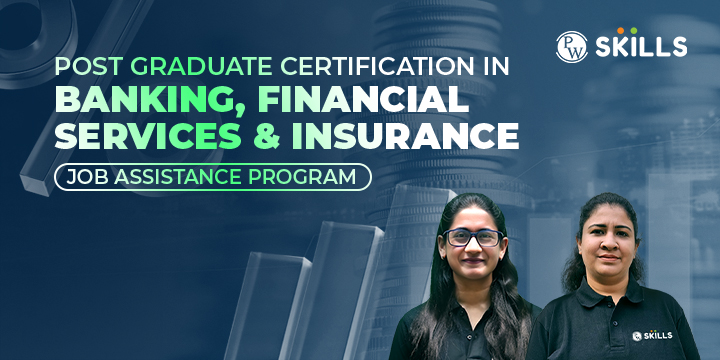Chartered Investment manager plays an important role in private banking firms that provide fund management, investment management, and other services. If you want to build a career in financing and investing, then Chartered Investment Manager is the best designation for you, with good career growth and opportunities. In this article, we will learn more about the steps required to find a career as a chartered investment manager.
What is a Chartered Investment Manager?
A Chartered Investment Manager is a professional standard for investment and portfolio management services. They are professionals who provide various portfolio management services, such as investment planning, financial planning, portfolio management, and more. They engage with high-net-worth clients to frame strategies for managing the wealth of individuals or organizations.
Having a chartered investment manager designation can help you grow your investment management career with many opportunities in finance and investing.
Key Takeaways
- A Chartered Investment Manager provides portfolio management services to their clients, taking responsibility for handling their investing, financial planning, and portfolio management.
- Chartered Investment Managers play a major role in investment and portfolio management.
- It highlights the skills and capabilities needed to manage all aspects of the investment portfolios of clients. CIM is recognized by Canadian securities regulators as a valid qualification.
How to Become a Chartered Investment Manager?
Becoming a chartered investment manager requires a set of knowledge, skills, and experience in investment and finance-related services. Let us know the roadmap for becoming a chartered investment manager.
1. Build your Basics
Having strong basics plays a vital role in becoming a successful CIM (Chartered Investment Manager) as they are the backbone of your learning. Make sure you are well aware of the financial, business, and economic terms to keep your learning smooth.
2. Educational Qualifications
Becoming a chartered investment manager (CIM) requires an undergraduate degree and work experience of about 2-3 years in investment management, financial analysis, portfolio management, or any related field.
You also need to have some additional certificates related to investment management, ethics, and related subjects.
The Canadian Securities Institution (CSI) is the organization that is responsible for providing educational programs and credentials, including CIM designation. There are two paths to pursuing CIM designation:-
- Path I: This requires completing four courses, which include the Canadian Securities Course (CSC), Wealth Management Essentials, Advanced Investment Strategies, and Portfolio Management Techniques (PMT). After completing these courses and associating exams, the candidate gets up to five years to apply for the CIM designation.
- Path II: This requires completing three courses, which include the Canadian Securities Course (CSC), Investment Management Techniques, and Portfolio Management Techniques (PMT).
3. Experience
While you are completing your undergraduate degree, you can opt for some online projects to collect some practical and professional experience. You can work in the financial industry in an entry-level role or as an intern. You can also gain experience in data analysis or financial analysis to build up your basics and enhance your skills.
PW Skills provides in-depth knowledge of wealth management techniques and more in the BFSI Course program. Prepare for job interview with dedicated career support and industry experts guiding you throughout the course.
4. Skills required
This designation requires a variety of skills to excel in professional relationships and manage investments.
- Analytical skills: You might need a good command of analytical skills, which may come in handy while analyzing financial statements and quantities.
- Technical skills: Having strong technical skills makes you familiar with investment management software, trading platforms, and databases of finance. It also helps you create and interpret financial models using Excel.
- Economic and Market Knowledge: Having regular updates on recent trends, market patterns, and market analysis enhances your knowledge and understanding of macroeconomic principles, market trends, and global market and how they affect the financial world.
- Communication skills: This is a must-have skill for a chartered investment manager, as it builds up the ability to present complex information with clarity. It also helps you to develop strong bonds and relationships with the clients, while understanding their needs and providing them with financial suggestions and solutions.
- Adaptability: This is a crucial skill that develops the ability to adapt to the changing market and helps you stay updated with the latest industry trends and practices.
5. Certification Program
Enroll in certification programs to enhance your knowledge and build a strong foundation in banking and finance. These certification programs help you gain practical knowledge and also train you for various roles in the private sector. Build a strong portfolio with certification courses from top institutes in India, as there are multiple online and offline training programs available for students. Choose any one that best suits your priorities.
Get into a CIM program offered by a reputed organization and complete the coursework and assessments to gain certification, which will showcase your knowledge of topics such as portfolio management, risk management, investment analysis, financial ethics, and more.
6. Non-Educational Requirements
There are certain non-educational requirements for the CIM listed below.
- At least two years of relevant work experience in the field.
- Applicant must sign a code of conduct.
- A signature of the certification mark license agreement must be provided.
- Application fee payment to complete the form.
Benefits of Holding a CIM
CIM opens a gateway for a bright career in portfolio management, wealth management, risk analysis, and more. You can get thousands of opportunities and stand out from the other competitors in the crowd.
- You will be listed in a separate CIM directory, which will help your clients connect with you and verify your Chartered Investment Management portfolio.
- You can use the CIM trademark easily while marketing your services.
- Access official online resources and materials on the official CIM Member portal.
- Gain wide exposure in the field of wealth and portfolio management advisories.
- Access the official member groups of CIM on LinkedIn and attend all webinars for free.
Learn Portfolio Management with PW Skills
Become certified in investment planning, risk mitigation, portfolio management, market analysis, and more with the PW Skills BFSI Course program. Build a strong foundation in banking and finance under industry experts and smart classes. Prepare for interviews, build your resume, and get hands-on learning experience only at pwskills.com
Chartered Investment Manager FAQs
Q1. Who is a Chartered Investment Manager?
Ans: Chartered Investment managers are professionals who provide various portfolio management services, such as investment planning, financial planning, portfolio management, and more.
Q2. Is CIM certification worth it?
Ans: With CIM certifications, you might open gateway to multiple job opportunities and exposure to a bright future in investment analysis, risk management, and more.
Q3. What are some skills required to become a Chartered investment manager?
Ans: Some of the major skills required are technical skills, analytical skills, communication skills, market analysis, and economic analysis for a successful Chartered Investment Manager role.
Q4. Can freshers become chartered investment managers?
Ans: Young graduates require in-depth knowledge in investment analysis, hands-on experience, and training to become chartered investment managers. To learn what else is needed to get a CIM designation read this article.





